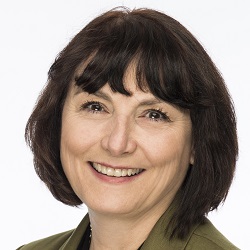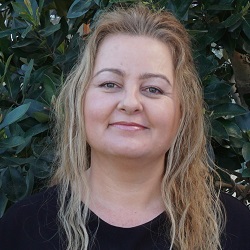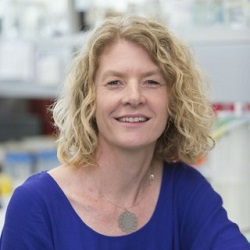March 8, 2018 Print
Women at the Westmead Institute are tackling the world’s biggest health issues. They are leading research projects that could change the future of health for Western Sydney and beyond.
For International Women's Day, we are showcasing some of the recent contributions that our female researchers have made to global health.

Can our genes help predict how women respond to ovarian cancer treatment?
Research, led by Professor Anna deFazio, has identified gene variants that play a significant role in how women with ovarian cancer process chemotherapy.
The research shows that the genes we inherit can impact how the body processes chemotherapy drugs, which may lead to different clinical outcomes for ovarian cancer patients.
Professor deFazio said these latest research findings are an important step towards delivering personalised treatment and better outcomes for patients. Read more.
 40% of women lack a critical nutrient for pregnancy
40% of women lack a critical nutrient for pregnancy
A study led by Professor Jenny Gunton revealed that more than 40% of women are deficient in iodine, a vital nutrient for developing healthy brains in babies.
Iodine deficiency is the single most preventable cause of mental delays. The median iodine level in the study sample group was 117ug/L, well below the recommended 250ug/L for pregnant and lactating women. Professor Gunton advised women to start taking a pregnancy multivitamin before trying to conceive. Read more.

New potential treatment for people with Type 1 diabetes
Patients with type 1 diabetes may soon have access to improved treatment, thanks to research conducted by lead researcher Rebecca Stokes.
The team examined different methods of transplanting pancreatic islets, the cells that produce insulin, into mice. They discovered that islets transplants were more effective and involved fewer risks when delivered into the quadriceps muscle, compared with the current practice of transplanting islets into the liver. The team now hopes to progress these findings into clinical trials for humans. Read more.
 Delivering better outcomes for triple negative breast cancer patients
Delivering better outcomes for triple negative breast cancer patients
Lead researcher Dr Dinny Graham and her team are aiming to develop a targeted treatment for triple negative breast cancer. Triple negative breast cancer accounts for approximately 15% of all breast cancers but, unlike more common types of breast cancer, it does not have effective or targeted treatments. The research team are testing which nuclear receptors act as biomarkers that may represent an opportunity for targeted therapeutic treatments.
The study aims to move towards meaningful treatments and reduce mortality rates for breast cancer patients. Read more.

Treating fungal infections that kill 1.6 million people annually
Our researchers are a step closer to developing a drug to treat life-threatening fungal infections that cause more than 1.6 million deaths annually.
The team, led by Associate Professor Julianne Djordjevic, found that Arg1, a protein produced by all fungi, enables the Cryptococcus neoformansfungus to establish potentially lethal infections in patients with weakened immune systems.
Associate Professor Djordjevic, said the team are now looking at Arg1 as a target for antifungal drug development, taking us closer to the development of safer urgently needed antifungal drugs. Read more.